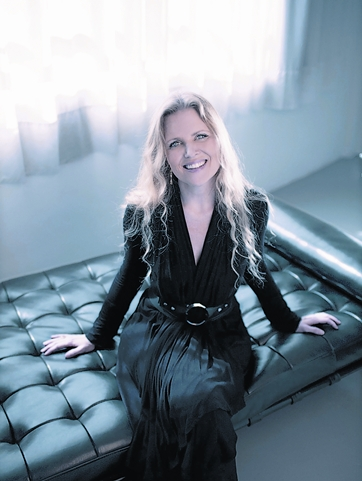
ONE FOR ALL “Anyone has veto power,” says Sutton of her ensemble’s cooperative spirit. |
"Is that the jawbone of an ass?", I ask Suz Slezak in the lobby of the Paradise, giving the question my best Biblical inflection. She'd been playing the strange percussion instrument with her band the David Wax Museum in their opening set for the Carolina Chocolate Drops. "Yes!" she says brightly. "You can get them on eBay!"
That might give you an idea of some of the multiple worlds - and multiple cultures - the David Wax Museum occupy. Slezak and band namesake David Wax play a variety of old-time-sounding folk with contemporary lyrics. Most notably, they cover trad Mexican folk but also write their own English-language versions. So though "The Great Unawakening" is based on an ancient son jarocho, it bounces along with Wax's lyrics about schlepping through shopping malls.
The Wax Museum - who celebrate the release of their third CD, Everything Is Saved, tonight (February 3) at Oberon - have been coming on strong for a few years, their rise culminating in plenty of NPR attention, a celebrated Newport Folk Festival appearance, and a 2010 Boston Music Award. Their success is based partly on their willingness to take that extra step to engage a live audience. At the Paradise, they came off the stage and into the crowd for a performance of their ballad "Lavender Street." ("It's a way to focus the crowd," Slezak tells me. "We started doing it when we were playing in bars.") But there's also the music itself. The call-and-response dance-rhythm bomp of the Mexicano folk is infectious in its own right. And Wax's skill as a songwriter extends to translating these forms not only into his own language but into his own experience. So in the trad son jarocho "La manta" ("The Blanket"), he picks up on the refrain "Sí, Mariquita, sí" to create his own hook and title, "Yes, Maria, Yes," in a guitar-strummed country waltz goosed by accordion and a cross-rhythm of syncopated eighth-note handclaps.
What's more, Wax and Slezak are one of those perfect close-harmony male-female duos. Wax's slightly nasal delivery, just this side of a Dylan-esque whine, is especially affecting when Slezak's pure country soprano joins him on the choruses and they sing something like the lover's plea "You say you're heading back South/But that's not true, and we both know it/that's not true."
The Missouri-born Wax began his sojourns in Mexico as a student at Deep Springs College in Southern California, a school that focuses on a service-based agrarian-studies curriculum. As part of an American Friends Service Committee program, he worked summers with coffee farmers in rural Mexico. After the two-year Deep Springs program, he transferred to Harvard, where his interest in Mexican rural culture led to a post-graduate traveling fellowship.
What partly struck Wax about Mexico, he tells me, trading the phone with Slezak at a Pennsylvania road stop, was how "history is present in an exciting way. The Mexican Revolution feels like a part of people's lives." Working with Oxfam America's free-trade coffee campaign, he also saw the Zapatistas first-hand.
At home in Missouri, he recorded the first David Wax Museum disc. Returning to Boston, he got together with local world-music percussionist Brian O'Neill and formed La Tuza - a vehicle for exploring Mexican folk. He also joined forces with the rural-Virginia-born, Wellesley-educated Slezak as a way to explore cultural fusions.